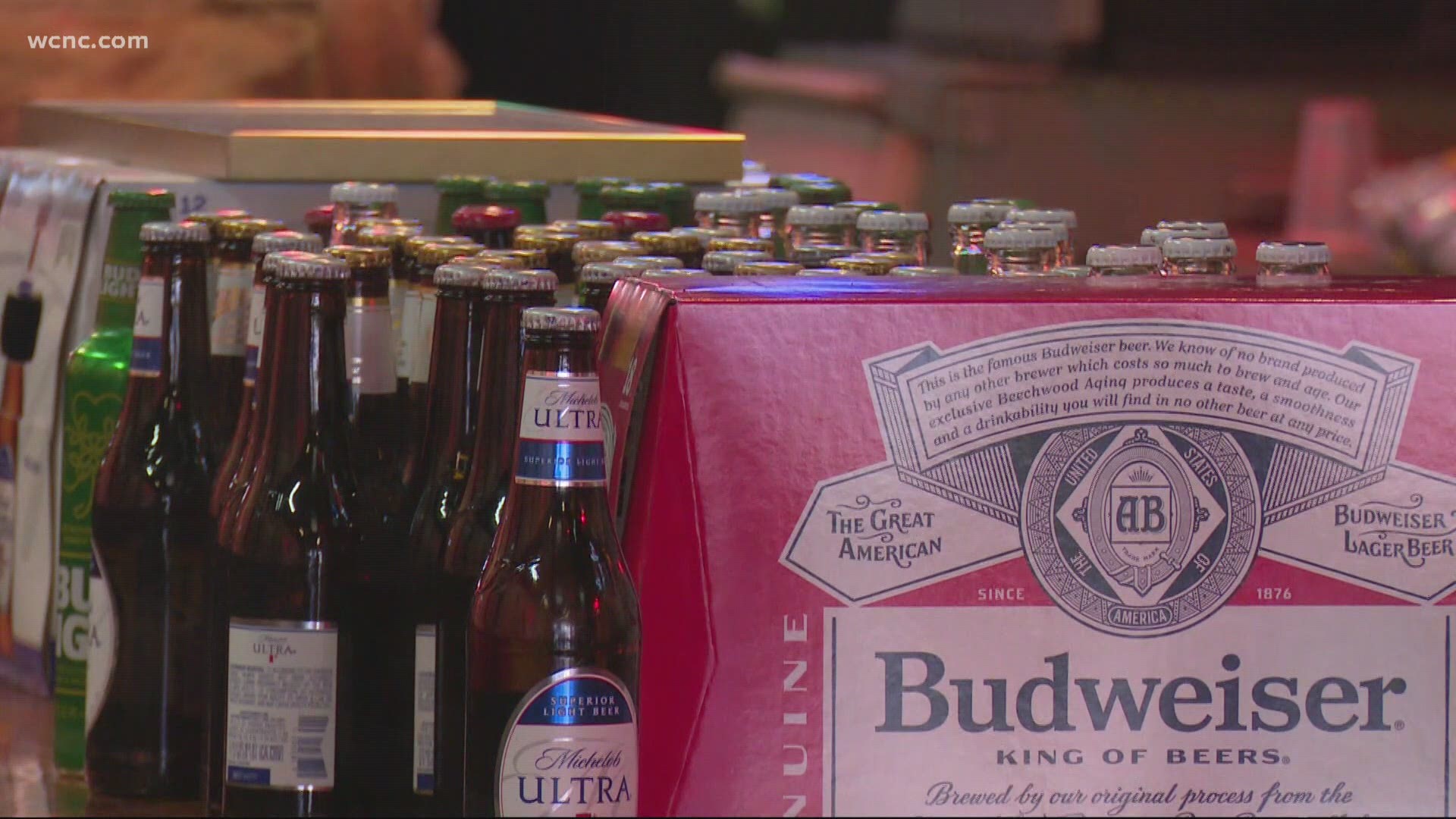CHARLOTTE, N.C. — With coronavirus data trends decreasing in North Carolina, Governor Roy Cooper is loosening, but not eliminating, some of the state's COVID-19 safety restrictions.
The new order and rules began Friday, Feb. 26 at 5 p.m.
Social distancing and mask-wearing mandates continue regardless of these changes.
"Today's action is a show of confidence and trust, but we must remain cautious," Cooper said during Tuesday's briefing Raleigh.
The nightly 10 p.m. curfew has also been lifted as Cooper's modified stay-at-home order expired. This nightly curfew is the only restriction being completely eliminated.
Capacity changes will allow businesses to host more customers simultaneously. Many businesses can now expand to 50% capacity so long as social distancing, mask mandate, and other safety precautions are still imposed. These businesses include:
- Restaurants
- Breweries
- Wineries
- Retail stores
- Gyms
- Museums
- Aquariums
- Barbershops and other personal care facilities
- Pools
Some exceptions apply to allow more or less attendance at particular businesses.
Club 519 in Greenville, NC, recently partnered up with Pacific Legal Foundation-- a pro bona law firm-- to help file lawsuit against Governor Roy Cooper. In the lawsuit, they cite “economic favoritism” regarding how some bars were able to open sooner than others. Specifically, bars inside restaurants, breweries, and wineries were able to reopen at limited capacity back in June while private bars had to remain closed.
“There’s no health or public safety data that supports this distinction,” attorney Jessica Thompson said. “We are suing for equal treatment. This case is really about fairness.”
Other bar owners like Club Chasers in Noda say they have had to deplete their savings accounts to stay afloat. Yet still ready to make the most of this long awaited chance to reopen.
“We’re still going to have some struggle ahead of us, but we are determined that we aren’t going to let the pandemic be the downfall of Club Chasers," co-owner and bartender Saamel "Mable" Smith said.
Impact on outdoor venues
Outdoor venues, including most sporting events, outdoor bars, outdoor amusement parks, can only operate at 30% occupancy but will no longer be maxed at a cap of 100 people. Previously, those events and businesses could not operate at the given capacity if the total number of people exceeded the numeric cap.
Starting March 1, CMS will begin to allow 500 spectators at outdoor athletic contests and competitions -- specifically, the home team is allowed 300 spectators, and the visiting team is allowed 200 spectators.
Large indoor sporting venues, such as those used by college and professional athletics, can operate at 15% capacity with no cap otherwise so long as their stadium or arena typically seats more than 5,000 attendees.
Impact on indoor businesses
Other indoor businesses, including bars, taverns, indoor amusement parks, movie theaters, can operate at 30% capacity but not to exclude a cap of 250 people.
At bars and restaurants, the deadline to discontinue nightly alcohol sales has been extended to 11 p.m.
Mecklenburg County health directive expires
Mecklenburg County Health Director Gibbie Harris' COVID-19 health directive has also expired as of Friday at 5 p.m.
Harris' directive expired in accordance with Cooper's new executive order.
Harris stressed the need to continue prevention and safety precautions in order to keep data trending in the right direction.
"We want this to work," Harris said during a briefing Thursday. "We need our community to continue to do the right thing."
Harris urged the need for businesses and individuals to continue practicing safe habits.
"This is an easing into as opposed to a full open," Harris said.
Have a relative or friend in another state and want to know when they can get vaccinated? Visit NBC News' Plan Your Vaccine site to find out about each state's vaccine rollout plan.

